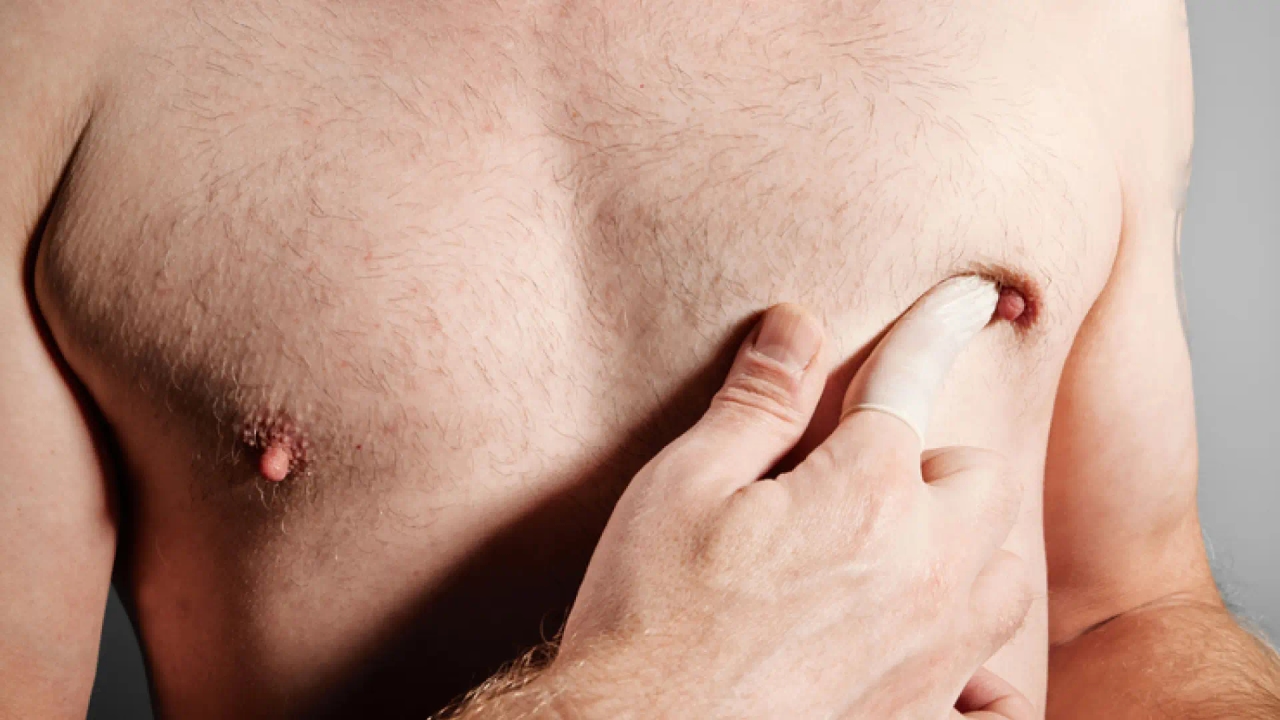Concepción, five years without breast cancer relapses thanks to an innovative drug: "I had extreme confidence in my doctor."

"I'm privileged," says Concepción, her voice filled with excitement. "Five years after being diagnosed with breast cancer, I'm still here. I feel great and haven't had a single recurrence ." Her story is a very encouraging one, because it illustrates how cancer treatments have made tremendous progress in a short period of time, transforming patients' prognoses.
"It caught me at the most intense moment of my life."As she shares with 20minutos , Concepción, who lives in Madrid and works as a salesperson, was almost 44 years old when she was diagnosed with breast cancer. It was 2020, and the COVID-19 pandemic was about to break out.
"If going to the hospital for chemo was already terrifying enough, you also had to deal with the whole COVID situation in hospitals," she recalls. "I was at the strongest point in my life, when I felt most fulfilled and could do everything I wanted. And then suddenly, this whole tsunami of emotions."
Cancer diagnoses completely shake up patients' entire lives, and they continue to be accompanied by many fears. "That's what comes to mind when you hear the word cancer," Concepción admits, "that you're going to have to say goodbye. You feel like you're in the middle of an ocean , lost."
"But once you focus, after all the anger, the crying, and the wailing, you realize that you have to keep going," she continues, "and that I had an incredible medical team by my side, who were going to get me a cure and who did everything they could to make it happen. The truth is, that's how I experienced it."
"I was going to be one of the first to have this opportunity.""At first," Concepción explains, "they diagnosed it as stage 2 breast cancer. But during surgery, they saw that it had spread to my lymph nodes: they had to remove almost all of them along with my breast, because it had already become metastatic. When this happens, they put me on chemotherapy and radiotherapy."
However, even with these treatments, her tumor type continued to present a high risk of recurrence. José Ángel Sáenz, an oncologist from Concepción, explained to this newspaper: "She had high-risk clinical breast cancer, with pathological characteristics that indicated a high probability of recurrence despite the best curative treatments."
These circumstances made her a good candidate to add a novel drug to her treatment: abemaciclib . "I was going to be one of the first patients in Spain to have the opportunity, if not the first," adds Sáenz. "We were going to start endocrine therapy, and we saw the opportunity."
This professional, Coordinator of the Breast Cancer Unit at the Hospital Clínico San Carlos in Madrid and head of the Breast Cancer Unit at the Hospital Ruber Internacional, also belongs to the executive committee of the GEICAM research group (Spanish Breast Cancer Research Group Foundation), which has been actively involved in the research of this drug and in the phase 3 monarchE trial, essential for its approval.
"If my doctor told me it was good, I was going to do it."Abemaciclib, developed by the pharmaceutical company Lilly and marketed in Spain as Verzenios, is a drug typically used alongside hormone therapy to treat early-stage breast cancers of the HR+HER2- or luminal subtype (approximately 70% of all cancers detected).
"At the time, it was very novel ," Sáenz notes, "although now, thanks to mature data, it's a reality. We had already seen with unequivocal data that patients who received the treatment had a lower risk of recurrence; the good news this week is that it also has a real impact on survival. In other words, we're curing more people thanks to research."
"Abemaciclib wasn't approved, but we asked for extraordinary use; as researchers, we knew unequivocally that it reduced the risk."
Despite this new development, Concepción says she had no doubts when the possibility of treatment with the drug was proposed to her. "On the contrary," she responds, "I've felt incredibly grateful. If the doctor gave me the opportunity, it's because he thought it was the best thing for me, and I had an extreme degree of trust in him. If he told me this was going to be good, I was going to do it."
"At that time, we had preliminary data from the MonarchE study," the doctor notes. "So we decided to ask the Spanish Agency of Medicines and Medical Devices (AEMPS) to allow us to use it on an exceptional basis, since it hadn't yet been approved. In other words, we asked for extraordinary use . As researchers, we knew that agents in this class were unequivocally demonstrating that they reduce risk."
"The bar was set very high"This patient's case is both the spearhead of a new tool in the treatment of breast tumors and another step in a progress that has been in the making for decades. According to Sánchez, there are five key milestones that have led to the development of abemaciclib.
"The first was to evaluate chemotherapy for breast cancer , once it was cured, to reduce the risk of recurrence. The second was the approval of tamoxifen in 1973 to reduce that same risk," the oncologist explains.
"The third step," he continues, "was the introduction of aromatase inhibitors in 2003 or 2004 to reduce the risk of cancer in postmenopausal women; the fourth was the advent of genomic platforms to determine patient risk and identify those we can cure without chemotherapy."
"And the fifth and final option is ovarian suppression in premenopausal women to attenuate the ovarian estrogen source and improve prognosis. All of this has been improving survival," she clarifies.
"The bar was set high. But then, about fifteen years ago, we realized there was another mechanism of action in tumor biology: cyclin-dependent kinases (CDKs): enzymes that regulate the cell cycle and tumor cell survival. We started thinking about how to inhibit them, to block that cycle."
This is how the family of drugs to which abemaciclib belongs (CDK inhibitors) was developed. Initially, they were used in cases of stage 4 breast cancer, where cure is already very difficult, with the goal of prolonging survival and maintaining quality of life.
However, Sánchez says, scientists suspected they could help more people: "Once we saw that they had a real impact at stage 4 , we asked ourselves why not use them to try to cure high-risk people. That's when we designed the monarchE trial."
"Whatever you live, live it intensely"Five years later, Concepción only has words of gratitude. "I've been privileged to be the first woman to access this drug at my stage of cancer," she admits. "Every time I go for a checkup, the same old fears of having a relapse return... But I feel great."
According to her, despite some after-effects from the operations, she has been able to resume her life and hobbies almost completely. "I exercise. I've gone back to the mountains... This year I was able to climb Aneto Peak ! I really feel great. I'm infinitely grateful; I really can't say anything else."
"My family had a really hard time," he continues. "The diagnosis was traumatic for them. But little by little, they've come to see that it wasn't so bad. The confidence from chemotherapy, radiation therapy, surgeries... It's given us more and more strength and energy to keep going . Now they're very happy."
And he concludes with a reflection: "I feel very strong and eager to continue doing things, enjoying my family and my daughter. Giving her my time. Because that's one of the things you learn with this illness: whatever you experience, live it more intensely... you have to make the most of your time ."
"Our children will reap what we are sowing"Likewise, the search for new ways to help more and more breast cancer patients live as long as possible doesn't stop there. "We continue to look for ways to improve," says the oncologist. "If we reap today what we sowed fifteen years ago, our children will reap in another fifteen years what we are sowing today."
"Spain is the country with the third highest rate of breast cancer research in the world, and one of those with the highest survival rates."
"For example, we're looking to add to these drugs others that specifically target other therapeutic targets," he adds. "We're also investigating ways to restore hormone sensitivity, so that in patients who have failed endocrine treatment, we can, instead of opting for chemotherapy, make the tumor sensitive to endocrine treatment again."
"Spain is the third country in the world in terms of research into breast cancer, after the United States and China. It's the first in Europe," Sáenz adds. "We must emphasize the importance of research in cooperative groups like GEICAM. The lines of research are so promising that today we can say that approximately 83% of all women with breast cancer survive more than five years, and we cure many of them."
"Ours is one of the countries with the highest survival rate in the world, thanks to research, early diagnosis, and the contributions of all health professionals," he concludes.

We're now on WhatsApp! If you want to receive all the latest news and the most important events of the day on your mobile, click here and join our channel. It's free, convenient, and secure.
20minutos





